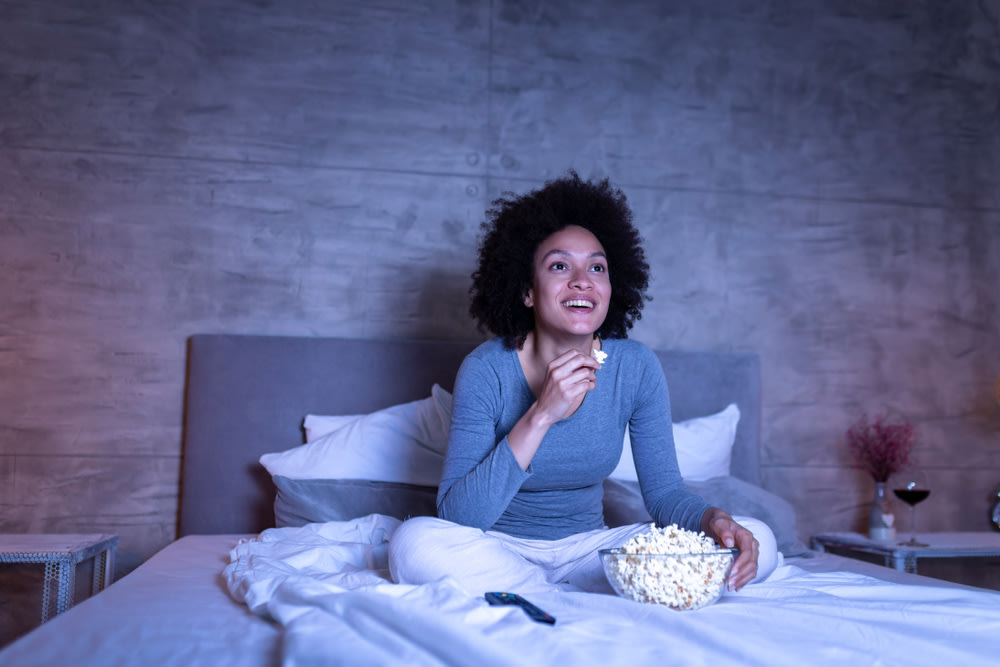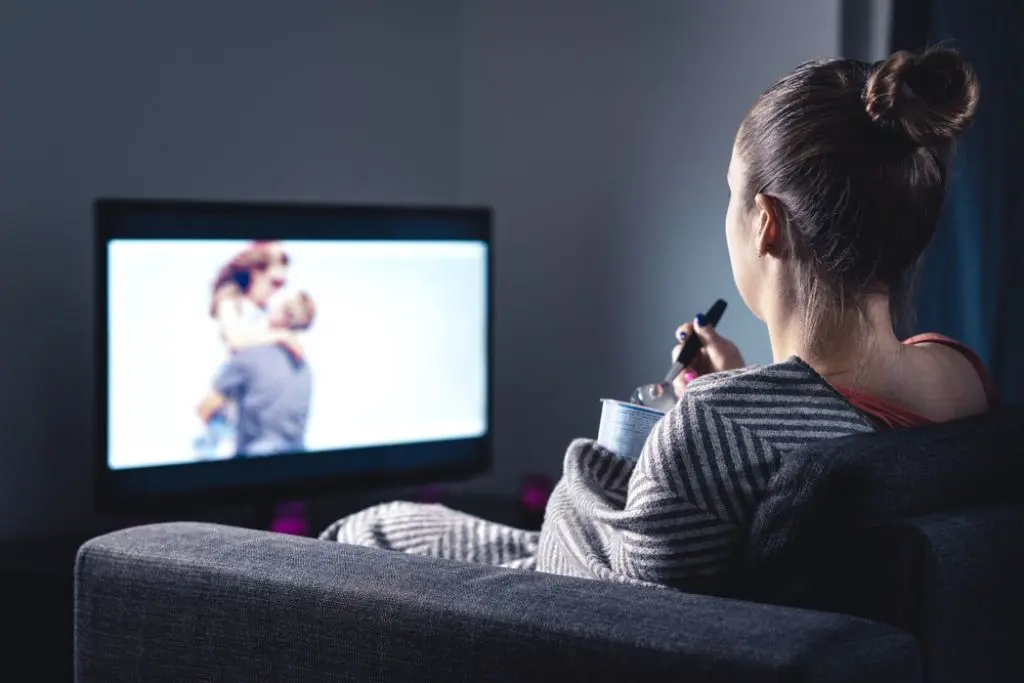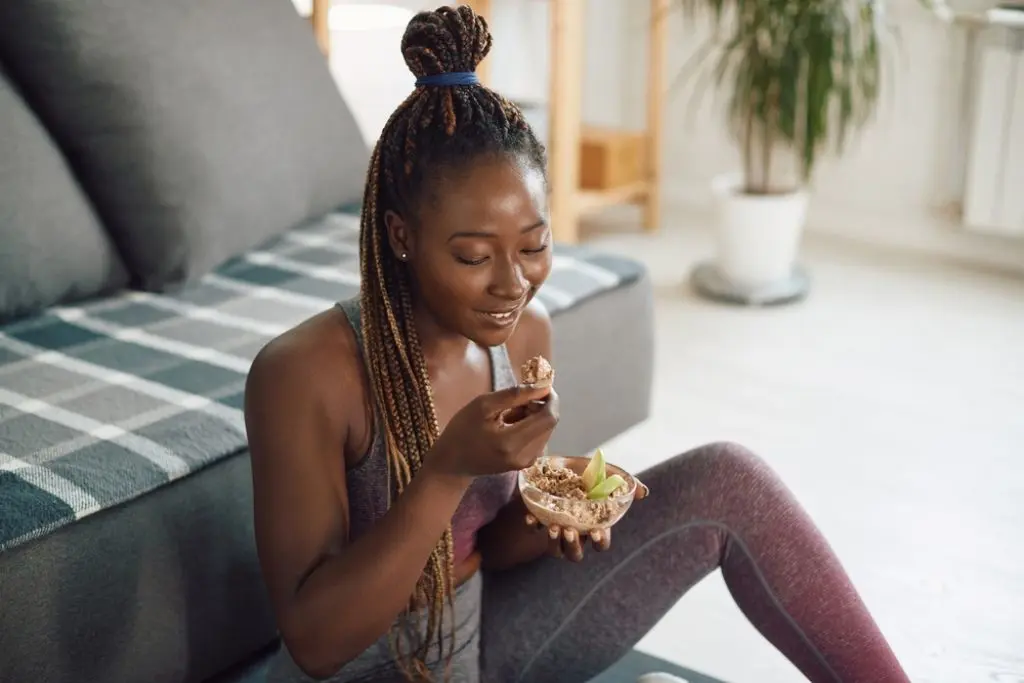Is It Bad To Eat Before Bed?

December 6, 2022 - Updated December 6, 2022

It’s bedtime and you’ve already had dinner but you’re feeling peckish. You’re probably wondering whether it’s better to snack or not to snack? And does eating before you go to bed have an impact on your digestion, sleep, weight and overall health?
For years this has been a hotly debated topic, with some people believing it’s bad to eat before bed because it can upset your sleep and digestion and that energy is more likely to be stored as fat, while others believe going to bed feeling full is the key to a good night’s sleep.
But food + sleep isn’t as simple as 1 + 1 = 2. Everyone’s bodies and lifestyles are different, so it pays to understand the different factors at play to find what works best for you.

Does eating before bed cause weight gain?
Understanding energy
Well, it depends. Your body still needs energy to function while you sleep, in fact, 2008 research has highlighted the largest component of daily energy expenditure is resting energy expenditure.
There isn’t some physiological reaction in your body that causes food to be stored as fat or for your metabolism to slow to a halt after a certain time (otherwise anyone wanting to gain weight would just cram all their calories in at night!), but there are several factors which can contribute to weight gain if you’re snacking late at night. This starts with understanding the energy equation.
According to the NHS, the general recommended daily calorie intake is 2,000 calories a day for women and 2,500 for men, but this number can vary depending on factors such as your age, lifestyle, metabolism, height and weight.
Using this example, if you were to eat 2,000 calories during the day and then eat more before bed, you can see how it would be easy to exceed your energy needs and gain weight. However, if that 2,000 calories included your bedtime snack, it wouldn’t make a difference. You could also create a calorie deficit and lose weight while still eating before bed if that was your goal.

It’s more about what than when
Additionally, the portion size and type of bedtime snack you reach for matters. A packet of potato chips, cookies or a bowl of ice cream differs significantly in terms of energy and nutrients from a bowl of fruit, yoghurt or a piece of toast with avocado.
This isn’t to say any of these options are inherently good or bad, but if weight management is a goal for you, understanding the roles energy and nutrients play is important, and research has shown you may be more susceptible to weight gain if you are consuming a significant amount of calories late at night.
Cleveland Clinic also supports this and says we tend to make less healthy decisions about what we eat late at night. We’ll happily admit when we want a little somethin-somethin to eat while watching our favourite show before bed, it’s not usually the most nutritious options that come to mind first.
We don’t plan on eliminating these kinds of foods anytime soon and don’t suggest you do either (unless you have dietary intolerances or specific goals in mind) and believe it’s all about finding a balance and enjoying all foods in moderation to take care of your incredible body. Most of the Sweat Trainers enjoy sweets and desserts as part of a balanced diet and active lifestyle (after all, what is life without chocolate?), and it works great for them!

Is eating before bed bad for your overall health?
Getting enough quality sleep is crucial to leading a healthy lifestyle, and your nutrition habits can also play a big role in how much rest you get. Going to bed with a rumbling stomach or waking up feeling ravenous in the middle of the night isn’t exactly a recipe for eight hours of quality sleep, and having a snack can definitely help you nod off if you haven’t eaten enough.
On the other hand, eating a large meal or consuming foods that are high in sugar can keep you awake, and evidence from a 2015 review shows negative health outcomes, such as cardiometabolic disease, have been demonstrated in response to eating large amounts of food at night.
2018 research has also shown that the evening may be a high-risk time for overeating, particularly when paired with stress exposure. Rather than asking whether eating at night is causing your body stress, it can also help to ask if your stress levels are causing you to eat at night.
To avoid these negative effects and even promote positive physiological changes while you sleep, such as improved muscle protein synthesis, researchers suggest small late-night meals containing protein that are nutrient-dense and low in energy.

For some people, the best time to work out is late at night or early in the morning before breakfast, and a nighttime snack would benefit both groups - either for muscle recovery or workout fuel.
If you’re often feeling peckish and wondering what kind of snack would be best for your body and routine, why not try keeping a diary? Writing down notes about your nutrition, meal timings, sleep patterns, mood, energy levels and workout performance can help you identify which habits make you feel your best (or your worst!).
It’s worth noting that nighttime snacks can also be beneficial or detrimental for different health conditions. For type 1 diabetics and people with glycogen storage disease, eating before bed is essential. For those with heartburn, gastroesophageal reflux (GER) or gastroesophageal reflux disease (GERD), eating close to your bedtime isn’t going to be good as symptoms can be worse at night or when lying down.
Nutritious late-night snack options
Next time you’re feeling hungry close to your bedtime, try one of these ideas to nourish and satisfy your body without keeping you awake:
Toast with avocado or an egg
Greek yoghurt
Berries
Fruit or crackers with nut butter
Oatmeal
Wholegrain cereal and milk
Handful of nuts or trail mix
Enjoy whatever it is that you’re craving mindfully and in moderation
Eating before bed can help you to sleep through the night, support muscle recovery and provide your body with the energy it needs, but it can also disrupt your sleep, contribute to weight gain or affect your health negatively. What’s most important isn’t the time you eat, but what you eat and how much in relation to your nutrition and movement habits throughout the day.
If you find yourself absolutely ravenous before bed more often than not, it’s probably worth asking yourself if you’re eating enough during the day!

A more empowered you starts with Sweat, and our editorial team is here to bring you the latest fitness tips, trainer recommendations, wellbeing news, nutritional advice, nourishing recipes and free workouts.
* Disclaimer: This blog post is not intended to replace the advice of a medical professional. The above information should not be used to diagnose, treat, or prevent any disease or medical condition. Please consult your doctor before making any changes to your diet, sleep methods, daily activity, or fitness routine. Sweat assumes no responsibility for any personal injury or damage sustained by any recommendations, opinions, or advice given in this article.
Nutrition